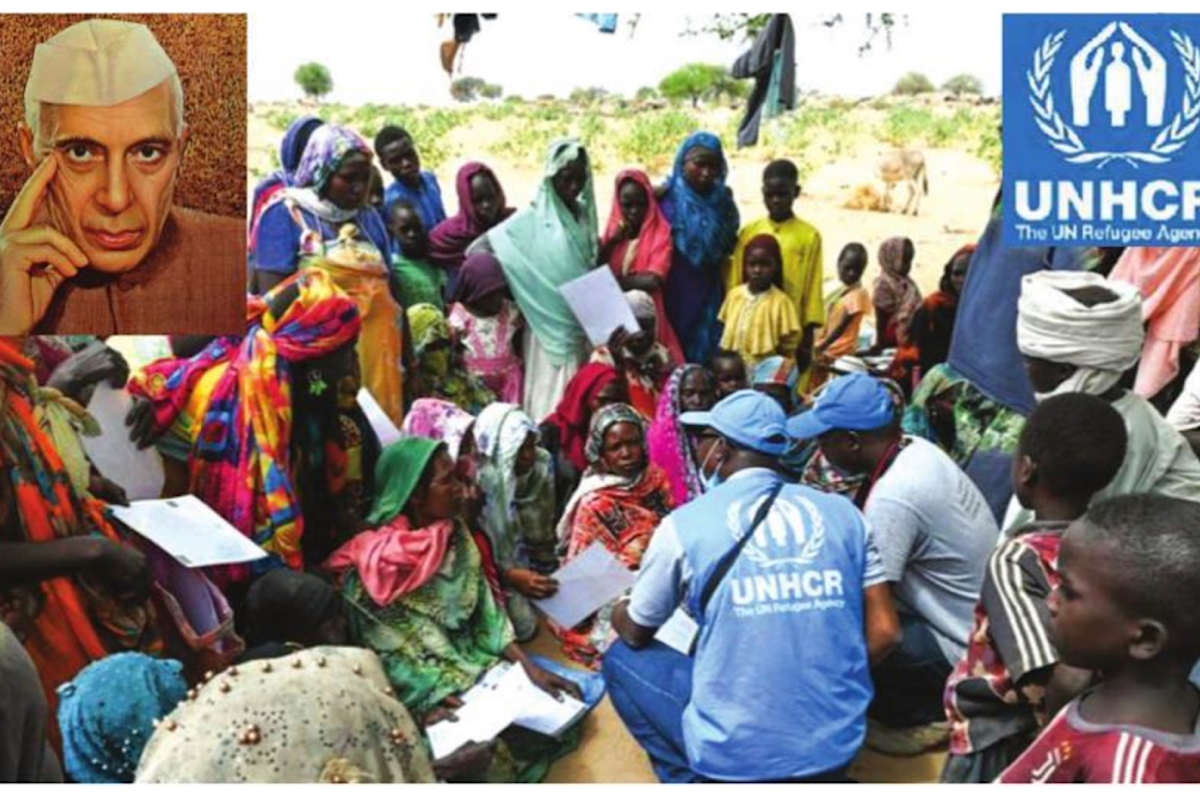Prime Minister Jawaharlal Nehru has often been criticized for his naivety in handling China and many believe that his unilateral decision to call for a cease fire and referring the Kashmir issue to the UN (1948) at a time when the Indian army had almost pushed out the infiltrators from occupied Kashmir, was a blunder.
Nehru’s lack of judgement was allegedly expressed when he denied an informal offer from the US (1955) to make India a permanent member of the UN Security Council on the ground that “it would be unfair to a great country like China not to be in the UNSC”.
However, his failure to attract global attention towards persistent inflow of persecuted Hindus from East Pakistan to West Bengal, Assam and Tripura never attracted serious notice of his critics.
Advertisement
More than seven million persecuted Hindus are estimated to have migrated from East Pakistan to India prior to the formation of Bangladesh on 24 March 1971. They were given refugee status in India. India never attempted to internationalize the issue nor tried to bring the issue to the notice of the world community so as to form public opinion to bring pressure on Pakistan to restrict migration of minorities.
Instead, Nehru tried to address the issue bilaterally through a treaty with Liaquat Ali Khan (1950), his counterpart in Pakistan, who befooled the Indian premier by effectively doing nothing to stop migration of Hindus of East Pakistan from their homeland under persecution and distress.
If India had acted firmly on the matter in the 1950s, perhaps that would have restrained subsequent migration of around three million minorities from Bangladesh, mostly when the neighboring country was ruled either by the army or by the par- ties sympathizing
with religious fundamentalism.
These unfortunate millions in India are still considered as “illegal migrants” in accordance with Foreigners Act (1946) and Passport (Entry into India) Act (1920)
and the Government of India could not bring out the rules to provide them citizenship, though the amendments in the Citizenship Act were passed in Parliament almost four years back.
The UN General Assembly had set up its refugee agency, United Nations High Commissioner for Refugees (UNHCR) in 1950. Though the body was established to complete its work in three years and was mandated to help the Europeans displaced during World War II, its scope of work was substantially enlarged. Since then, UNHCR has been working to help the refugees all over the world.
The Agency works to ensure that “everybody has the right to seek asylum or find safe refuge having fled violence persecution or war at home”. India was not a party to the Refugee convention of UNHCR (1951) or its protocol (1967) and never had a national policy for handling the refugees.
What made Nehru’s India so lukewarm towards UNHCR, in spite of being one of the worst sufferers in history can be understood if we examine how the first PM wanted himself to be seen by the world community. He wanted to be perceived as a fou- nder of a peace-loving neutral mo- dern nation and as a true statesman.
This image of himself did not fit with the mayhem that happened in either side of Punjab immediately after partition. The Census figures of India and Pakistan for the year 1951 revealed that about 53 lakh Muslims moved from the Indian side of Punjab to Pakistan and another 12 lakh Muslims migrated from Gujarat, Maharashtra, Hyderabad and other parts of western and central India to Sindh.
On the other hand, about 34 lakh Hindus and Sikhs moved from the Pakistan side of Punjab to East Punjab and another 12 lakh from Sindh to India. All this happened when Nehru was the Prime Minister. He perhaps wanted to underplay these happenings.
If Nehru had taken a proactive role in UNHRC affairs in the 1950s, his adversaries would have got a chance to highlight the exchange of population in North India on religious lines and that would have undermined his position as a premier of a modern secular nation.
Eventually India lost the opportunity to attract world attention towards unrestrained onesided migration of persecuted Hindus from East Bengal, one which is crippling the economy of eastern India even after 75 years of independence.
Though India does not acknowledge the administrative role of UNHCR in its territory, it has allowed the UN Refugee Agency to have its offices in different locations of the country since 1981.
There has not been any change in the attitude towards refugees in India under the present regime. Now that three-quarters of a century has passed since independence, India should stop avoiding further adoption of a comprehensive refugee policy.
Should Muslim “illegal migrants” from Bangladesh who came to India in millions because of better life opportunities be granted refugee status?
Should Rohingya and Kuki refugees from Myanmar who were also subject to religious per- secution in their country or refugees from Afghanistan who were subject to violence by the Taliban be treated similarly as we propose to treat the Tamil refugees of Sri Lanka or the Tibetan refugees from China? We need to spell this out.
As an emerging power in world politics, we can hardly afford to follow an Ostrich policy forever.
(The writer is a former civil servant who is now an independent commentator on socio-economic issues and public policy)









